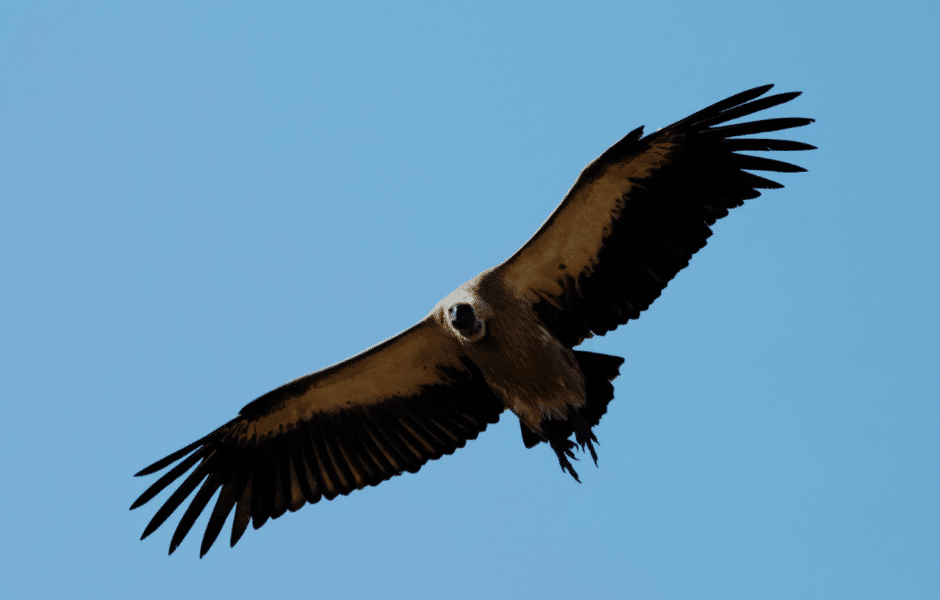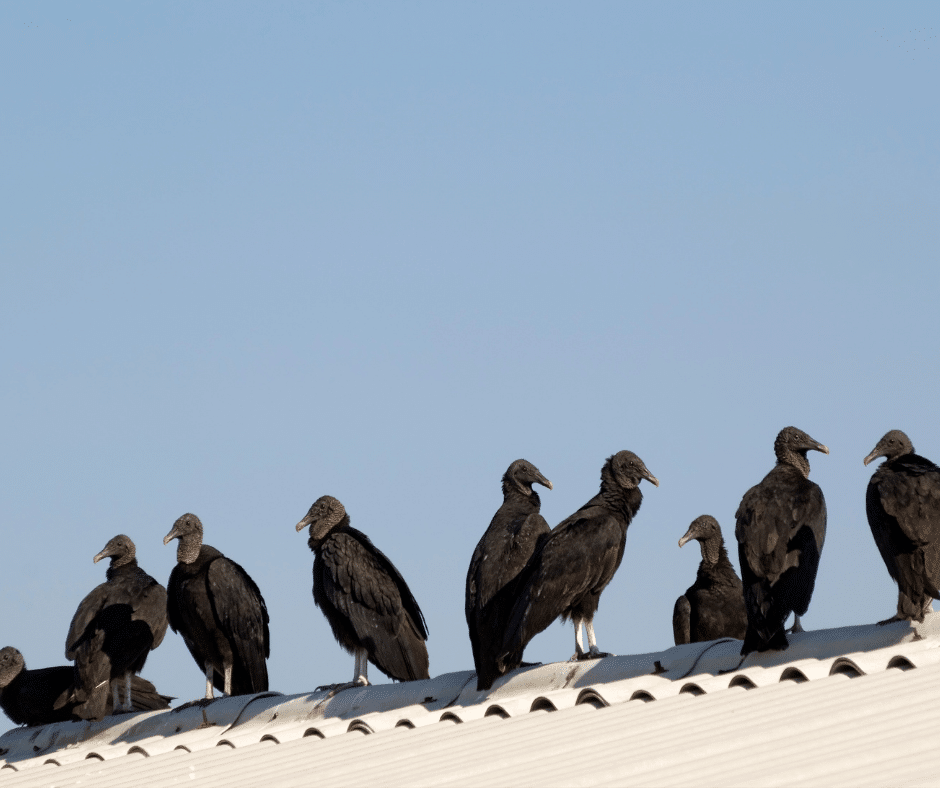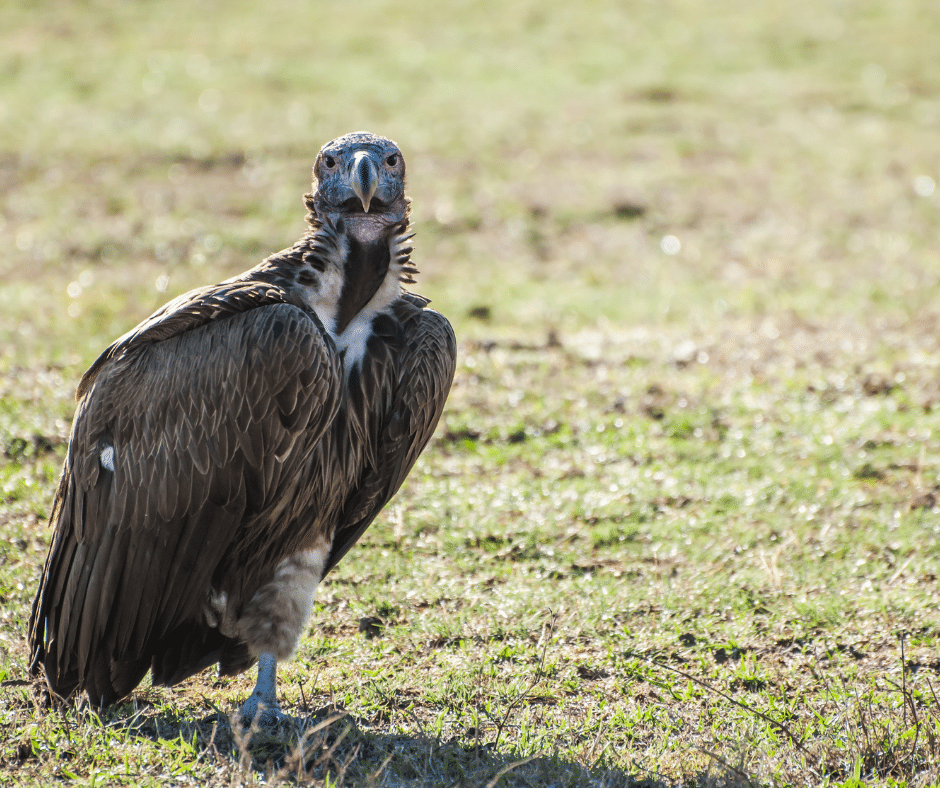
Learning About the Vultures of Florida
There are so many birds in the state of Florida. In fact, many bird watchers love to visit the state and – watch!
Florida is home to beautiful birds like the Roseate Spoonbill, the Painted Bunting, and the American Goldfinch. It is also home to great birds like the Bald Eagle and the Great Horned Owl.
Florida is a blessed state indeed. Clearly, some birds are not quite so attractive or fun to watch. And one of those unattractive bird species would definitely be the Vultures of Florida.
Getting to Know the Vultures of Florida
It is true- vultures are not the most beautiful of the birds we see each day in the south. It is a solid black with skin that is gray and wrinkled. Their faces are bare-skinned, and they prey on the dead. Yes, they eat the flesh of dead animals and steal food from others. They hiss and grunt rather than whistle and sing, but humans seldom hear their vocalization.
Vultures live in caves, cases of trees, and hollow stumps. Then when hunting, they take to the skies, flying high and perching on branches to watch for other vultures that have found food sources. Finally, they swoop in for the meal and tear it to bits until there is nothing left.
The diet of the vulture is dead animals, as stated earlier. In addition, they will eat the eggs of other birds, lizards, and turtles. Vultures may kill and consume other birds, turtles, and the new babies of mammals. And occasionally, they will dine on plant materials like coconuts and rotting veggies. When desperate, these birds will even find their way into open trash containers.
All that to say, there are a few good things about the Florida vultures you might want to know about!

What is Good About the Vultures of Florida?
Yes, a few good things, despite the ugly, are known about vultures.
First, vultures are cleaner than you might imagine. In fact, they are specially created for that purpose. Their bald heads are designed to keep all the rotting flesh they eat from getting on their feathers. And if they happen to pick up any dangerous bacteria from the food they eat, they can wash it off their own feet through urination.
What’s more, the dangerous bacteria and diseases that dead animals contain do not affect the vultures. They have unique stomach acids that help them digest the food unharmed.
More importantly, vultures are good for the ecosystem. Really, they are. You see, vultures eat the roadkill we might otherwise stumble upon more often on our roadways and in parks. They clean our planet from decay! Genius, right?
Interestingly, farmers often use circling vultures to locate a cow they know may be in labor. Since the vultures will be circling the area waiting to get at the mother in distress or the new calf, the farmers know right where to find the mama and help protect her and the calf.
Finally, vultures are family-oriented. Both male and female vultures take care of young birds until they are ready to fly the nest.
The Problem with the Vultures
The problem with a vulture population in your yard or near your home goes beyond bald heads and wrinkly skin. These birds are incredibly adept at living with humans. And vultures are increasing in numbers, causing conflict with humans in agricultural areas and the cities we live in.
According to the USDA – United States Department of Agriculture- here are some major concerns when dealing with vultures.
Property Damage:
Humans do not enjoy watching vultures in urban settings. Vultures’ talons tend to scratch cars; they tear at wiper blades and rubber seals. On boats and tractors, these birds will tear at the vinyl seat covers. If they choose to attack a home, the birds will rip at window caulking, roof shingles, and liners, tear vent seals off, and tear at screens and pool covers.
Then there is what the vultures leave behind. If you have ever walked through a path where vultures have been perched, the smell is nauseating. They leave large amounts of vomit and feces on roofs, pathways and sidewalks, buildings, communication towers, and even transmitter boxes. This is not only a stinky mess, but it can cause shortages and total outages, damaging the structure.
Agricultural Damage:
While these birds do a great job of cleaning up the dead carcasses of the planet, they also eat live animals. Vultures will kill calves, piglets, lambs, animals giving birth, and weaker animals, too. When they are going after one of these animals, they usually go for the eyes and can cause significant damage to a herd.
Health & Safety:
That excrement left in and around homes is another issue other than being unsightly and foul. Droppings near water sources and peoples’ homes can pose health concerns for the locals.
Additionally, these birds’ flight patterns can put them in the path of smaller aircraft.

How to Deal with the Vultures of Florida
Dealing with vultures can be a dangerous and tricky job. That is why it is critical to let your local wildlife company know if your community is experiencing a problem with vultures. Suppose you contact local professionals to help with a vulture infestation. In that case, there are several things they can do for you and your community.
- Wildlife consultants will evaluate the damage made by the birds.
- They will recommend techniques for resolving the issue.
- Experts can set up light and sound devices as well as fake vultures to scare off a roost.
- And they can let you know what attractors you may have on the property bringing in the birds. Open trash cans, livestock, and other wildlife are just some of the examples.
Prevent Vultures from Roosting on Your Property
These birds of prey may be stunning to watch in their circular flight patterns, but we understand you do not want them perching around your property.
Here are a few suggestions to keep vultures from taking a branch in your tree.
- Remove birdbaths and feeders, keeping them 30 feet from your house.
- Large pets in the yard and around the home help keep the birds away.
- Use humane bird spikes on the roosting spots, like the rounded tip spikes.
- Install a metal mesh to block chimney holes, dryer vents, and pipe fittings. The birds are less likely to tear up the metal ones and cause further damage.
- Get all the rodents out of your yard. No scurrying meals or dead animals means no vultures.
- Hire a qualified wildlife removal company to rid your property of unwanted rodents and small meals for the vultures in your area.
World Class Wildlife Removal for Vultures in Florida
Do you have a vulture issue in your community? World Class Wildlife Removal is here for all your wildlife removal needs. We use safe and humane methods whenever possible and abide by the local wildlife laws. Our team of expertly trained specialists is ready to help you reclaim your home and property when unwanted guests invade.
Each day we remove nests and critters of all sorts from Florida homes. There is just about nothing we have not seen or removed. And suppose the animal you want to be shooed away is endangered or protected. In that case, we can relocate the critter to a shelter or state-approved area for rehabilitation and relocation.
Click here for a free inspection with our expert team of wildlife removal specialists. World Class Wildlife Removal will be there right away for all your pest removal needs.
World Class Wildlife Removal is a top-rated local family-owned, full-service wildlife trapping, removal, and repair service. We can remove an infestation before it becomes an extensive problem for you and your family.
Contact World Class Wildlife for all your wildlife removal needs today.
